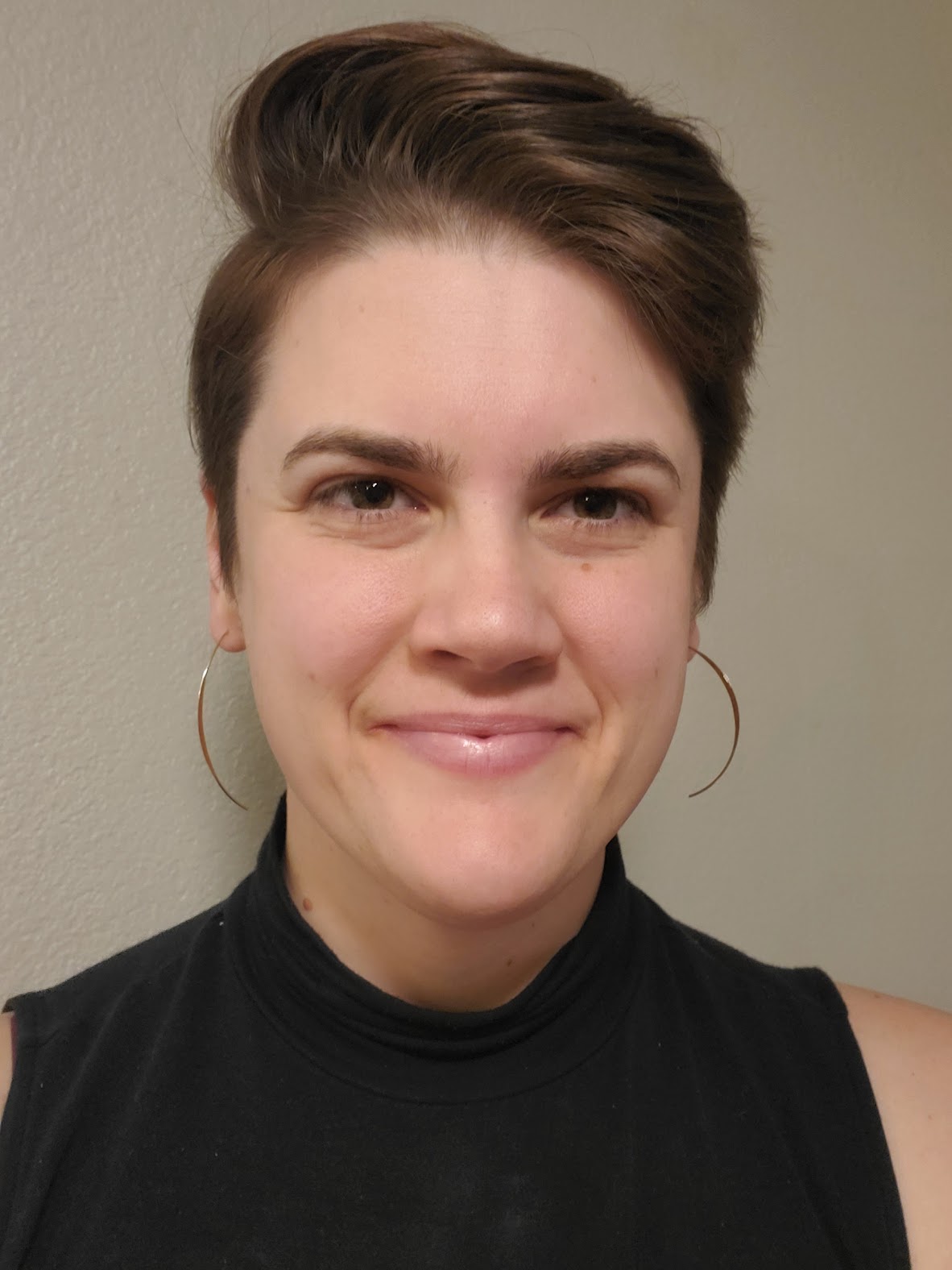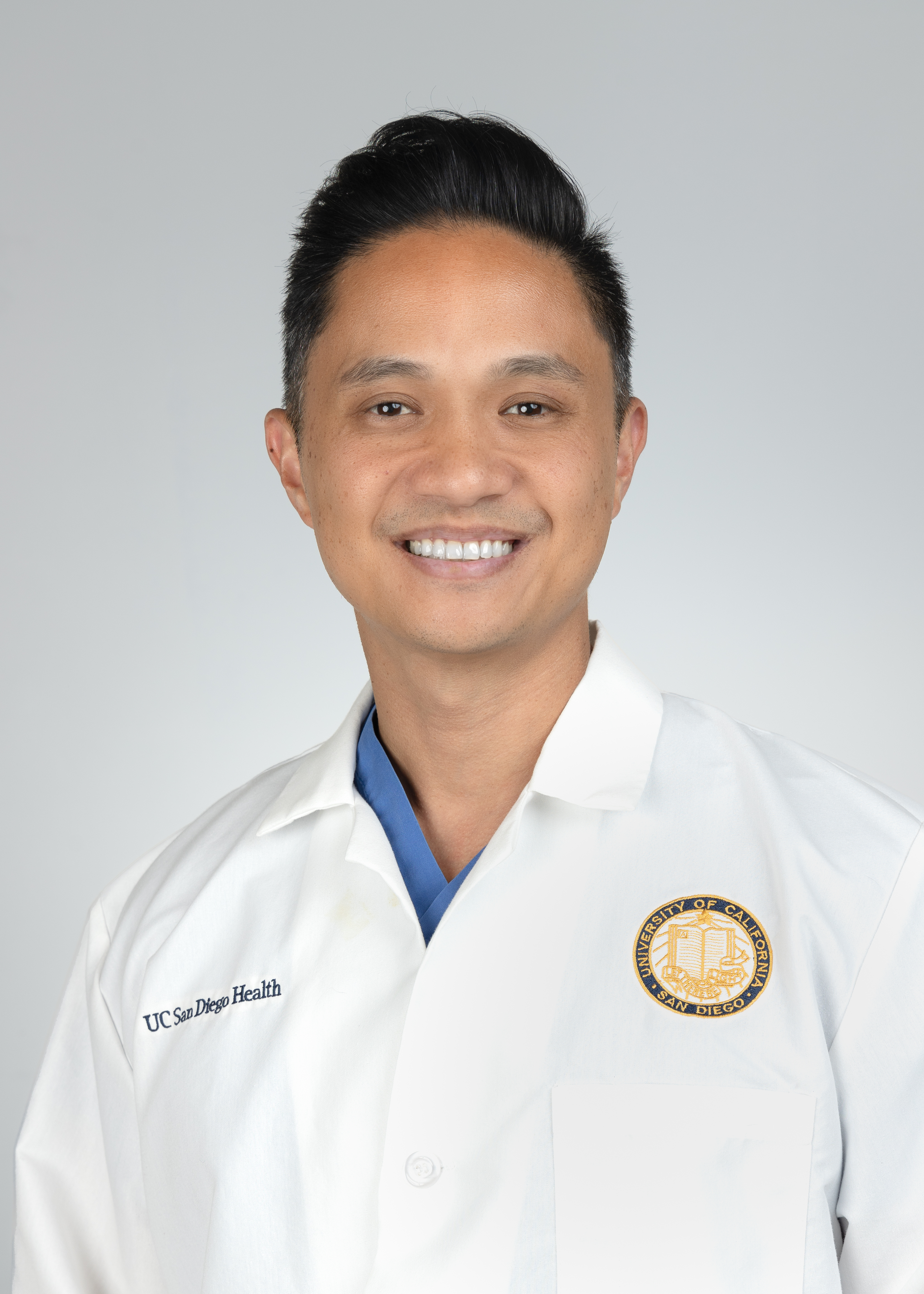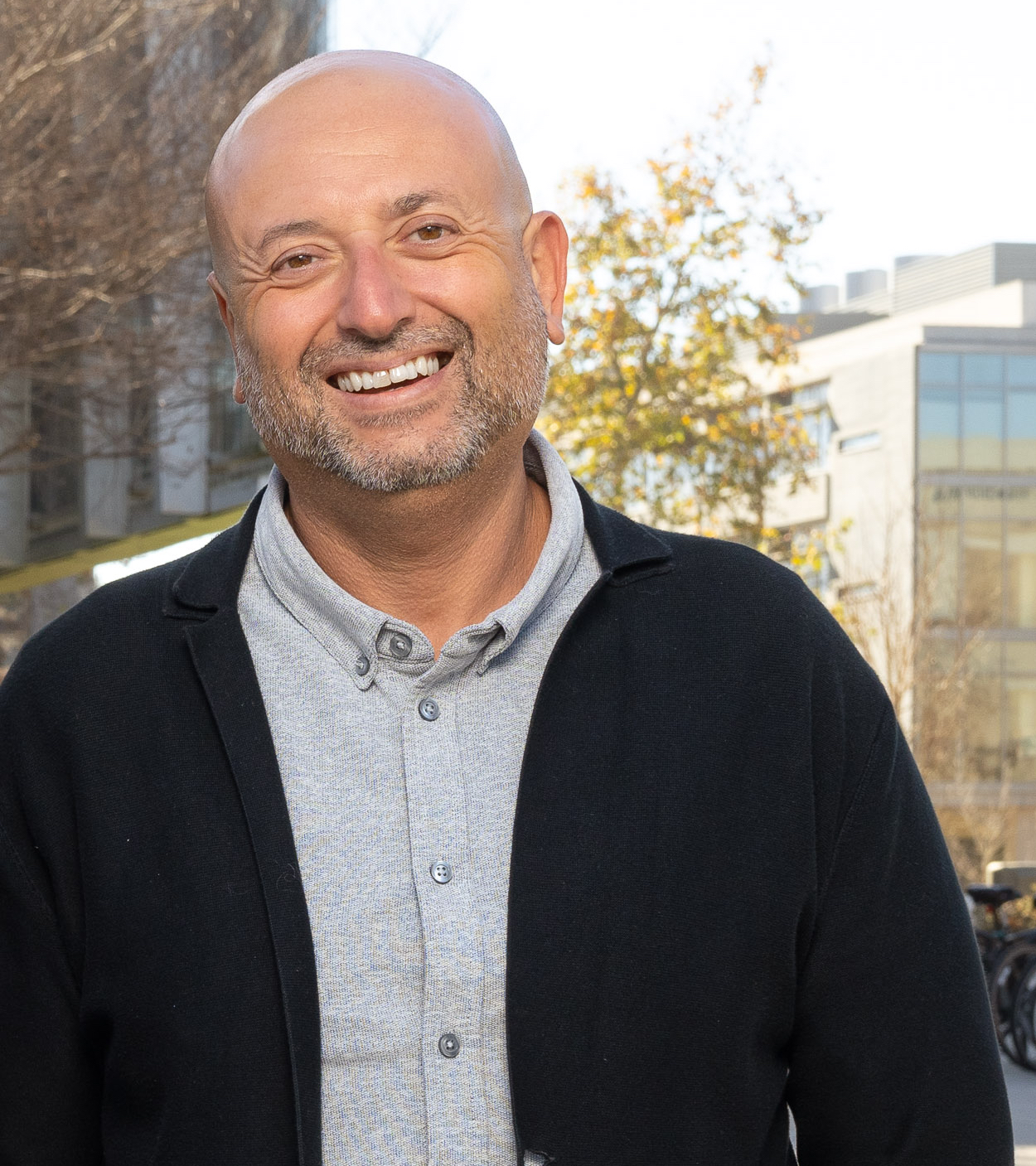-

Dr. Laura Case
Dr. Case investigates mechanisms of pleasant touch perception and its modulation of pain. The important discoveries of Dr. Case’s lab (www.caselaboratory.org) include:
- Affective deep pressure is conveyed by Aβ afferents (unlike the C-tactile affective touch pathway) and utilizes a novel molecular pathway.
- Reduced affective touch perception in Fibromyalgia but preserved touch-pain modulation, with individual differences predicted by depression and trauma history.
- Oxytocin reduces perception of heat pain. Dr. Case holds an IND to test perceptual effects of subcutaneous oxytocin.
- Use of a weighted blanket improves chronic pain interference, especially for individuals with high trait anxiety.
- Social connectedness is linked to lower levels of chronic pain than social disconnection.
-

Dr. Nathaniel Schuster
- EN21 -Phase 2 RCT studying novel medication for painful diabetic peripheral neuropathy
-
RELIEV-CM2- Pivotal RCT studying novel implantable device for refractory chronic migraine
-
Dr. Brian Ilfeld
- Improving Postamputation Functioning by Decreasing Phantom Limb Pain and Opioid Use with Perioperative Continuous Peripheral Nerve Blocks: A Multicenter RCT - The ultimate objective of the proposed research is to determine if a dense, week-long perioperative ambulatory continuous peripheral nerve block will improve post-amputation functioning
- Ultrasound-Guided Percutaneous Peripheral Nerve Stimulation: A Non-Pharmacologic Alternative for the Treatment of Postoperative Pain - The ultimate objective of the proposed research is to determine if ultrasound-guided, percutaneous peripheral nerve stimulation will provide postoperative analgesia for ambulatory shoulder and foot surgery
- Eliminating Post-Mastectomy Pain and Opioids with Percutaneous Cryoneurolysis: A Single-Administration, Non-Opioid, Non-Addictive, Multiple-Month Analgesic - The ultimate objective of this project is to determine if ultrasound-guided percutaneous cryoneurolysis is an effective treatment for postoperative pain following mastectomy
- Percutaneous Cryoneurolysis: A Single-Administration, Nonopioid, Nonaddictive, Multiple-Month Analgesic for Thoracic Trauma Free of Systemic Side Effects - The ultimate objective of this project is to determine if ultrasound-guided percutaneous cryoneurolysis is an effective treatment for postoperative pain following mastectomy
- A Randomized, Single-Blinded, Sham-Controlled Study Evaluating the Efficacy and Safety of RELAY, a Device Enabling Both Local Anesthetic Delivery and Neuromodulation for Postoperative Analgesia, in Participants Having Shoulder or Foot Surgery Following a Single Arm Training Run-In - This is a single-center, sham-controlled study to investigate the efficacy and safety of RELAY (Gate Science, Boston, MA), a device that enables the delivery of both local anesthetic and neuromodulation (peripheral nerve stimulation) to treat postoperative pain
-

Dr. Brian Head
Dr. Head studies neuroprotection against trauma and neurodegenerative disease, including Alzheimer’s disease (AD), amyotrophic lateral sclerosis (ALS), and Multiple Sclerosis. His work is focused caveolin (Cav), a scaffolding and cholesterol-binding protein in membrane/lipid rafts in regulation of synaptic signaling and neuroplasticity in human neurons derived from iPSCs and mouse models of AD and ALS. For his work, Dr. Head was bestowed the 2012 Presidential Early Career Awards for Scientists and Engineers (PECASE) through the Department of Veterans Affairs, which is the highest honor given by the United States Government to science and engineering professionals in the early stages of their independent research careers.
- Dr. Head’s novel neuron-targeted Cav-1 (synapsin-promoted, SynCav1) AAV-mediated gene therapy (U.S. Patent No. 8,969,077 B2, 2015: Neuronal specific targeting of caveolin expression to restore synaptic signaling and improve cognitive function in the neurodegenerative brain and motor function in spinal cord) was licensed to Eikonoklastes Therapeutics, which received Orphan Drug Designation by the FDA for its use in ALS patients (First In Human Phase I Clinical Trial planned for 2025).
- Dr. Head has shown that AAV9-SynCav1 administration to AD mice preserved neuroprotective signaling complexes in the hippocampus, improved contextual fear memory recall, augmented dendritic arbor and synaptic ultrastructure, improved mitochondrial respiration and dynamics in mice (Cerebral Cortex. 28: 3255-3266, 2018; Molecular Therapy – Methods and Clinical Development. 21, 2021; 10 (9), 2021).
- AAV9-SynCav1 delivery to the spinal cord (via subpial route) delayed disease onset, augmented running-wheel performance, preserved spinal alpha-MN morphology and neuromuscular junction integrity, and increased survival in the hSOD1G93A ALS mouse model (Theranostics 12:5389, 2022).
-

Dr. Timothy Furnish
- Psychedelics for Phantom Limb Pain - Evaluating the effects of psilocybin vs Niacin on phantom limb pain and the potential neural mechanisms of this effect in a RCT with fMRI evaluations of functional connectivity changes between pre and post psilocybin.
-

Dr. Rodney Gabriel
- Leveraging artificial intelligence and multimodal data to predict opioid addiction - Using electronic health record data, we are using state-of-the-art AI approaches from standard machine learning to large language models to predict risk of opioid addiction among diverse patient populations.
- Multi-omics analyses of opioid use disorder - We are exploring genomic and microbiome patterns of opioid use disorder. We use bioinformatics techniques to study whole genome sequencing, from GWAS to network propagation analyses to better understand genomic risk for addiction. Furthermore, we study patterns in the microbiome and metabolome that are associated with opioid use disorder.
- Predicting clinical deterioration among critically ill patients using artificial intelligence - Using large electronic health datasets, we use state-of-the-art AI approaches to predict, in real-time, various outcomes in the inpatient setting, including mortality, ARDS, myocardial ischemia, and stroke. We leverage a multimodal approach that integrates various types of clinical data to improve our ability to predict these outcomes.
- Improving preoperative optimization using artificial intelligence - In collaboration with the Anesthesia Preparedness Clinic, we are developing tools that can more efficiently screen and predict risk among surgical patients prior to their procedure. This includes using AI to process textual and structural data to make predictions and recommendations for anesthesia providers.
- Improving perioperative efficiency with artificial intelligence - Using UCSD electronic health record data, we use various machine learning and large language model approaches to better predict various key hospital efficiency metrics, including surgical case duration and hospital length of stay.
- Cryoneurolysis for painful diabetic neuropathy – a randomized sham-controlled clinical trial - We are currently running a randomized clinical trial assessing the efficacy of ultrasound-guided cryoneurolysis of the superficial peroneal nerve, sural nerve, and other nerves of the foot for painful diabetic neuropathy of the foot.
- Understanding the association of social determinants of health and surgical outcomes - Using large electronic health record datasets with social determinants of health data, we are running analyses on better understanding how an individual’s own social barriers may influence their outcomes after surgery and chronic pain diagnoses.
-

Dr. Fadel Zeidan
Research is focused on determining the active mechanisms that mediate the relationship between self-regulatory practices and health. In particular, our research examines the neural mechanisms supporting the modulation of pain and health by several meditation techniques such as mindfulness meditation. We are also focused on understanding how psychedelics like psilocybin, DMT and cannabis impact pain-related behavioral and neural processes.
-

Dr. Michael Vaninetti
- TMS Research for Phantom Limb Pain - Investigate novel transcranial magnetic stimulation (TMS) sequences to modulate cortical reorganization and alleviate phantom limb pain in amputees.
-
Implantable Neuromodulation Devices for Low Back Pain - Developing innovative implantable neuromodulation device aimed at treating facetogenic low back pain through targeted nerve modulation.
-
Medical Devices for Anesthesiology and Chronic Pain Management - Conducting research into various new medical devices designed to improve anesthesiology and chronic pain management.
-

Dr. Jessica Oswald
- Principal Investigator, Online Physical Therapy Videos, UC San Diego, 2020-Present - Created a series of online physical therapy videos to treat the most commonly encountered painful conditions in EDs and outpatient clinics. Studying patient and provider satisfaction.
-
Principal Investigator, Teachability of the Erector Spinae, UC San Diego, 2020-Present -Assessment of the use of QR codes for the use of home instructional discharge videos
-
Principal Investigator, Ultrasound Guided Nerve Block Curriculum, UC San Diego 2025 - Created a nerve block curriculum for emergency medicine residents and implemented QR codes in the ED for point-of-care reference.
- Principal Investigator, Improving ED Migraine Management, UC San Diego 2025 - Principal Investigator on a project to improve emergency department migraine management using novel CGRP analogs by developing an EPIC order set for standardized, evidence-based treatment.
- Sub-Investigator, phase 1 clinical trial 2024-2025, 10% funding, 2025-2026 - NIH/NIAAA R44 AA024905. $1,600,000 2024-2025 Nezavist, A Novel Molecule for Treatment of Alcohol Use Disorder
-

Dr. Mark Wallace
- A Novel Therapeutic to Ameliorate Chronic Pain and Reduce Opiate Use - NIH funded (NIDA UG3 DA047680)) phase IA study in healthy volunteers to determine safety, tolerability and drug pharmacokinetics of a new therapeutic for chronic pain
- Nezavist, A Novel Molecule for Treatment of Alcohol Use Disorder - NIH funded ( NIAAA R44 AA024905) phase IA study in healthy volunteers to determine safety, tolerability and drug pharmacokinetics of a new therapeutic for alcohol use disorder
- An interventional, Phase III, double-blind, randomized, controlled, parallel-group, multi-site, clinical trial evaluating the efficacy and safety of Qutenza in subjects with post-surgical neuropathy. -Industry sponsored Phase III study to determine the efficacy and safety of high dose topical capsaicin for chronic postsurgical neuropathic pain
-
Dr. Tony Yaksh
The Yaksh lab was established in 1989 to undertake research on the biology of pain and analgesia. It has had an active presence at UCSD as evidenced by the fact that since 1989, the laboratory has published over 650 papers and chapters. This work at UCSD over the years reflects the contributions of over 100 post baccalaureate laboratory fellows. The present research endeavors by Dr. Yaksh, the research fellows, technicians and inter-institutional collaborative activities funded by multiple NIH/DOD grants, focus on nociceptive processing and its regulation. Several current areas of focus and interest may be noted.
- TLR 4 Lipid rafts-the inflammaraft . Membrane lipid rafts are an organizational nidus for membrane channels, receptors and enzymes that regulate cellular excitability. The TLR4-raft subtype are localized in spinal microglia, and DRG macrophages/nociceptors. TLR4-rafts can transform from labile membrane structures into persistent complexes supporting formation of homo / hetero dimers of channels and receptors. Our focus is to define the role of these raft complexes and their regulation in pain (PMID: 39414176; PMID: 36719418).
- Circulating immune complexes in the chronic pain states and the dorsal root ganglion system. Pathological states such as arthritis and fibromyalgia are characterized by circulating immune complexes (IC) which gain access to the dorsal root ganglia though the DRG-vascular barrier to affects DRG macrophages and satellite cells to initiate and enhance afferent activity. Characterization of these ICeffects are a key focus of our research (PMID: 38117255).
- Virally initiated pain states. Virally-associated pain states can drive transcriptional changes in inflammatory cells and sensory afferents and initiate pain phenotypes. We have an interest in these associated pain states and the pharmacology of the how that pain state may be regulated. (PMID: 39958365)
- Voltage gated sodium channels. Nav 1.7 sodium channels expressed in afferent nociceptors, typically in lipid rafts, are an effective target for pain control. Our focus is on spinal platforms to reduce NaV1.7 expression and binding to define disease modifying effects of channel regulation on joint inflammation, bone modeling and pain. (PMID: 33692134).
- Social stress and pain processing. Environmental stress can lead to changes in the pain phenotype (e.g. nociplastic pain). We focus on the biology and pharmacology of these pain states, considering the role of circulating factors/adaptive immune signaling and intrinsic connectivity (e.g. bulbospinal pathways) (PMID: 40072079 )
- Sensory innervation of the skin and peripheral cell systems. Antidromic activity in nociceptive afferents releases afferent transmitters that have profound effects upon trophic functions of skin tissues, drives activity in inflammatory/immune cells and affects innervated tumors. Characterization of these multiple effects is of particular interest (PMID: 29423889)
- Neuraxial drug delivery. Pain, spasticity, neurodegeneration and cancers often have a spinal focus. Spinal (intrathecal/epidural ) delivery may be a useful delivery option. Spinal therapeutics face two issues: limited pericatheter redistribution and limited rostrocaudal redistribution. A root solution is achieved by enhancing solute exit velocity and enabling an even distribution of injectate exit along the length of the catheter though use of calibrated slits which function as normally closed valves distributed along the catheter that open when the pressure exerted by the column of fluid in the catheter exceeds the transmural pressure required to open the distributed valves.
- Use of human cells in defining system function and action. Work with human derived cells to create nociceptor assemblies and DRGs obtained from spine surgery and organ harvest, the use of microfluidic chambers to drive sprouting and allowing studies on soma and dendrites to undertake patch clamping and calcium imaging of DRG soma in the presence of co cultures of macrophages, osteoblast and cancer cell is an approach of considerable evolving interest to our group.
-

Dr. Hemal Patel
Professor Patel’s expertise is in caveolin and mitochondrial biology. He has applied this expertise to the study of basic scientific inquiry into cardiovascular disease, neurodegeneration, aging, diabetes, and cancer. In the past few years, he has worked with clinical groups to apply specific techniques to clinical research. As part of the MAS in Clinical Research, Dr. Patel teaches the Scientific Communications Skills course during the Winter and Summer quarters. He has also served on several MAS thesis committees.
- Is currently funded by grants as a Principal or Co-Investigator from the Veterans Affairs, National Institutes of Health, Department of Defense, and the Tobacco-Related Disease Research Program
- Was awarded the prestigious national award and named a VA Research Career Scientist
- Currently serves on the Editorial Boards of the Am J Physiology: Heart Circ Physiol, Am J Physiol: Cell Physiol, J Geriatric Cardiol, Physiol Rev, Cells, and Bioenerg Comm and is a handling editor for the Brit J Pharmacol
- Has reviewed grants for the VA, NIH, NASA, and the French National Research Agency and chaired a Small Business Innovation Research (SBIR)/Small Business Technology Transfer (STTR) NIH Review Panel
- Has presented his scientific research during 2019-20 at 15 national and international venues (Kobe, Japan; Le Ppuliguen, France; Taipei, Taiwan—pre-Covid-19 and multiple virtual presentation post-Covid 19)
- Has published 22 original manuscripts, review articles, and editorials in 2019-20
- Serves as a research consultant for CavoGene Life Sciences and Verséa
